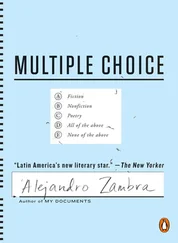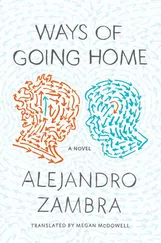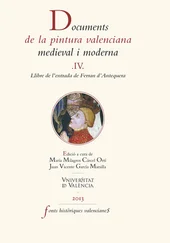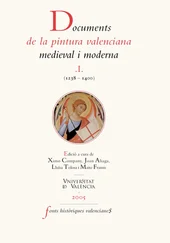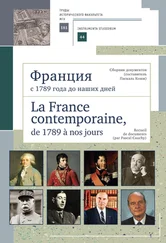The first thing he did was transcribe the poems he had written over the past several years — short texts, elliptical and incidental, which were considered good by no one, but weren’t considered bad either. Something happened, though, when he saw those words on the screen, words that had made so much sense in his notebooks: he began to doubt the verses, and he let himself get carried along by a different rhythm — maybe one that was more visual than musical. But instead of feeling like the change of style was an experiment, he pulled back, got frustrated, and very often just deleted the poems and started over again, or wasted time changing fonts or moving the pointer of the mouse from one side of the screen to the other, in straight lines, in diagonals, in circles. He didn’t give up his notebooks or his pen, though, and at the first slip-up, he splattered ink all over the keyboard, which also had to endure the threatening presence of countless cups of coffee and a continuous rain of ash, because Max almost never made it to the ashtray, and he smoked a lot while he wrote, or, rather, he wrote a little while he smoked a lot. Years later the accumulated grime would lead to the loss of the vowel a and the consonant t , but that’s getting ahead of things, and it would be best, for now, to respect the proper sequence of events.
The computer brought about a new kind of solitude. Max didn’t watch the news anymore, or waste any time playing the guitar or drawing: when he came back from the university he would immediately turn on the computer and start working or exploring the machine’s possibilities. Soon he discovered very simple programs whose capabilities struck him as astonishing, such as the voice recorder, which he used with a scrawny little microphone that he bought at Casa Royal, or his My Music folder, which now hosted all twenty-four of the compact discs he owned. While he listened to those songs, amazed at how a ballad by Roberto Carlos could give way to the Sex Pistols, he continued working on his poems, which he never considered finished. Sometimes, lacking a heater, Max fought off the cold by kneeling and embracing the CPU, whose low hum merged with the refrigerator’s snore and the voices and horns that filtered in from outside. He wasn’t interested in the Internet, he distrusted it, and though he had set up an e-mail account at his friend’s mother’s house, he refused to connect to the web, or to insert those diskettes that were so dangerous: potential virus-carriers, he’d been told, with the power to ruin everything.
The few women who came to his apartment during those months all left before dawn, without even showering or eating breakfast, and they didn’t come back. But at the beginning of summer there was one who did stay to sleep, and then also stayed for breakfast: Claudia. And she came back — once, twice, many times. One morning, emerging from the shower, Claudia stopped in front of the darkened screen, as if looking at her reflection, searching for incipient wrinkles or some other stray mark or blemish. Her face was dark, her lips more thin than full, her neck long, her eyes dark green, almond-shaped. Her hair hung down to her wet shoulders: the tips of it were like needles resting above her bones. The towel that she herself had brought over to Max’s house could wrap around her body twice. Weeks later, Claudia also brought over a mirror for the bathroom, but she still went on looking at herself in the screen, though it was difficult to find, in the dark reflection, anything more than the outline of her face.
After sex, Max tended to fall asleep, but Claudia would go to the computer and play rapid games of solitaire, or Minesweeper , or chess (at the intermediate level). Sometimes he would wake up and go sit next to her, giving her advice on the game or caressing her hair and back. Claudia gripped the mouse tightly in her right hand, like someone was going to snatch it from her, and she clenched her teeth and widened her eyes exaggeratedly — although every once in a while she let out a nervous giggle that seemed to give him permission to go on caressing her. Maybe she played better with him beside her. When the game ended she’d sit on Max’s lap and they would begin a long, slow screw. The strange lights of the screen saver drew fickle lines on her shoulders, on her back, her buttocks, on her soft thighs.
They drank coffee in bed, but sometimes they made space at the table so they could sit down to eat breakfast “the way God intended,” as she would say. Max would unplug the keyboard and monitor and leave them on the floor, exposing them to treading feet and minuscule breadcrumbs, and so, every once in a while, Claudia had to use glass cleaner and a kitchen rag to clean them. But the computer’s conduct was, during this period, exemplary: Windows always started successfully.
On the thirtieth of December, 2001, almost two years after its purchase, the computer moved neighborhoods to a slightly larger apartment in Ñuñoa. Its surroundings were significantly more favorable now: it had its own room and its own desk, which had been assembled from an old door and two sawhorses. Claudia graduated from hands of solitaire and interminable chess games to more sophisticated activities — she connected a digital camera, for example, that contained dozens of photos from a recent trip, which, though it couldn’t exactly be considered a honeymoon, because Max and Claudia weren’t married, had more or less functioned as one. In some of those images she posed with the ocean behind her, or in a wood-paneled room with Mexican sombreros and immense crucifixes on the walls, and shells that served as ashtrays. In other images she looked serious, or was holding back her laugher, and in still others she was naked or wearing very little, smoking weed, drinking, covering her breasts or displaying them mischievously. (“I can’t resist your lustful, wanton face,” he wrote on an afternoon that was certainly hot but maybe a little too iambic-pentametered.) There were also some photos that showed only the rocks or the waves or the sun going down on the horizon, a series of imitation postcards. Max appeared in only two photos, and only one showed both of them, embracing, smiling, a typical seaside restaurant in the background. Claudia spent days organizing those images: she renamed the files with phrases that were too long and tended to end in exclamation points or ellipses, and she grouped the files into several folders, as if they corresponded to many different trips, but then she put them all together again, thinking that, in a few years, there would be many more files — fifty, a hundred files for all the photos from a hundred future trips, because they were going to have a life full of travel and photographs. She also spent hours trying to beat level five on a Pink Panther game that came as a gift with the detergent. When she despaired, Max tried to help her, although he had always been terrible at video games. If you could have seen them in front of the screen, how tense and concentrated they were, you might have thought they were solving arduous and urgent problems on which the future of the country or world depended.
Their schedules didn’t always coincide in the new house, because now Max had a night job — he had lost the contest for assistant-ships at the university, or rather the professor’s new girlfriend had won — and Claudia sold insurance and was also studying for some kind of postgraduate certificate. Sometimes they would go one or two days without seeing each other — Claudia would call him at work and they would talk for a long time, since Max’s job consisted, precisely, of talking on the phone, or waiting for remote telephone calls that never came. “Seems like your real job is talking to me on the phone,” Claudia told him one night, the receiver sliding off her right shoulder. Then she laughed with a kind of wheeze, as if she had to cough but the cough wouldn’t come, or as if it had gotten mixed up with the laugh.
Читать дальше

